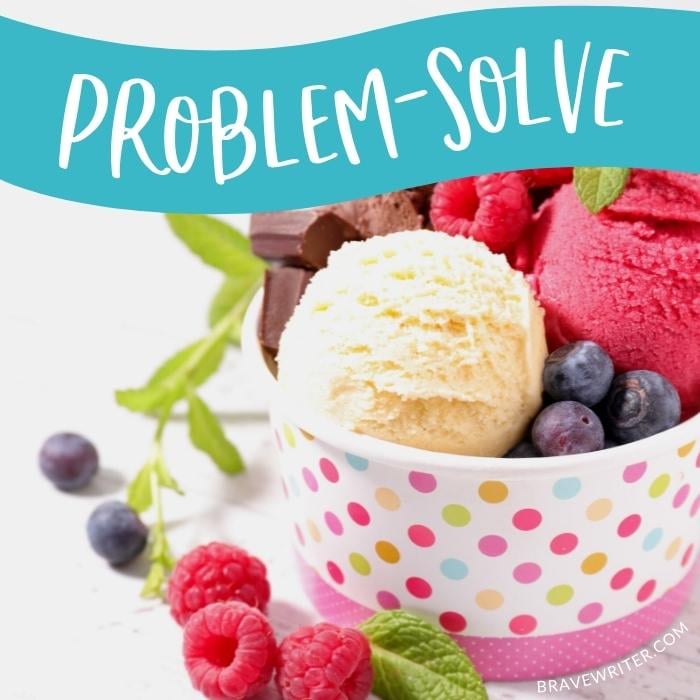Problem-Solve

When faced with a problem…
- a child wants ice cream for dinner
- two kids are fighting over a toy
- a teen can’t understand why he can’t sleep in until noon each day
…why are adults obsessed with framing the issue as one of character development rather than as a problem to solve?
I’ll tell you why.
If we focus on our children’s character, we can coax them into solutions that benefit us.
Solutions that take a child’s needs into account feel inconvenient or expensive or annoying.
Ice cream for dinner goes against our sense of morality around meals. But what if for one night, we did eat ice cream for dinner? What if we started dinner with dessert and ended with baked chicken? Would that be so horrible—to test that experience and see what happens?
If two kids fight over one toy, we want to frame the conflict as selfishness. If possible, why not buy a second identical toy? Buying the second toy solves the problem. Calling children selfish trains them to pretend they are okay with sharing when they are not!
A teen who wants to sleep in and stay up late is a mere inconvenience (parents worry that the teen will bang around and wake people up). Wanting to stay up late and sleep in is not a moral failing. We don’t have to say that the teen will never know how to show up to a job on time or that the teen is inconsiderate of other people. Buy the light sleeper some ear plugs or turn on a white noise machine. Remind the night owl to stay in a soundproof part of the house.
Problem-solve. Don’t lecture.
Figure out a way to help each person in the family have what they want. You know how. You do it with adults all the time!
This post is originally from Instagram and @juliebravewriter is my account there so come follow along for more conversations like this one!


















